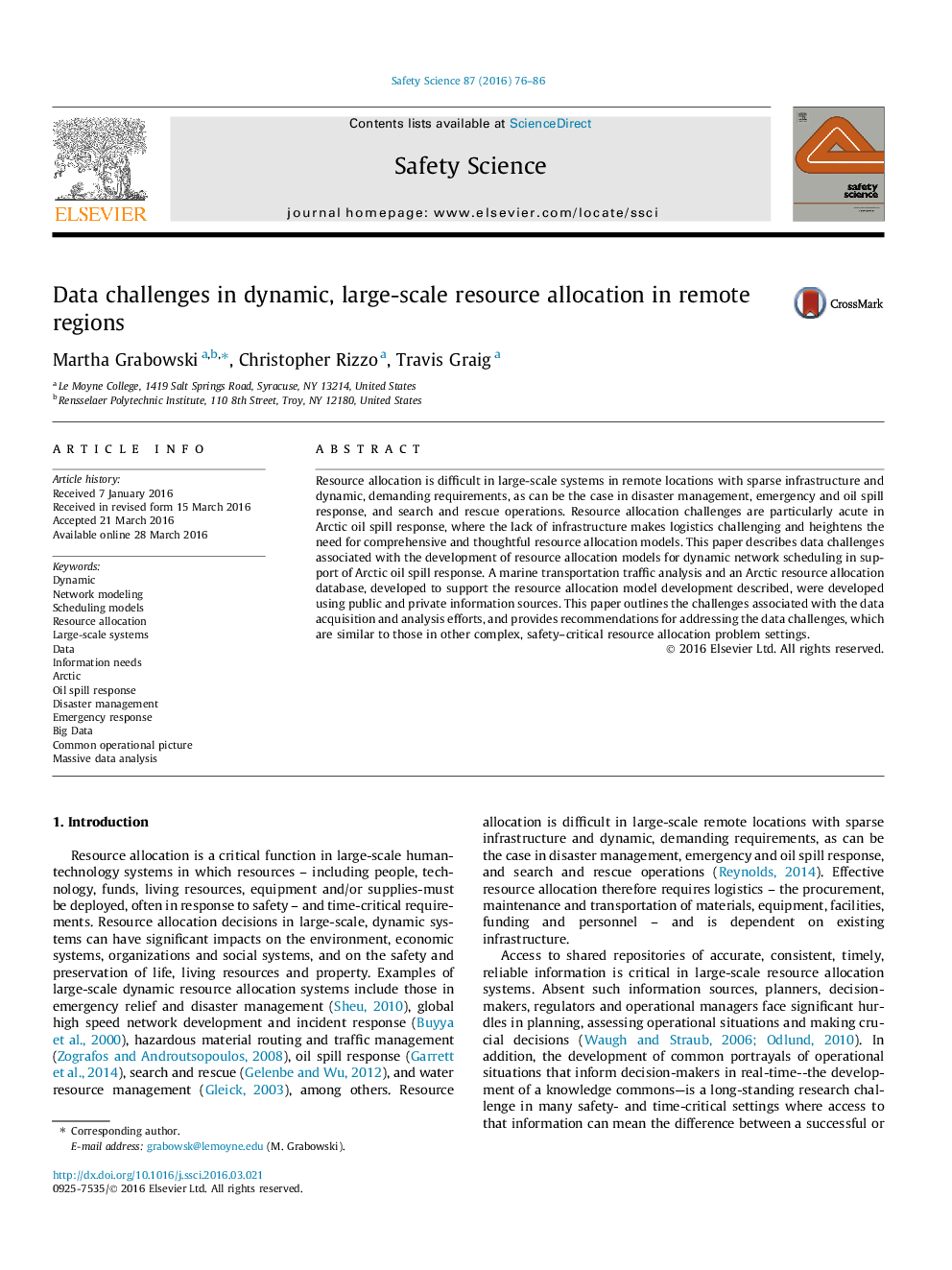| Article ID | Journal | Published Year | Pages | File Type |
|---|---|---|---|---|
| 588943 | Safety Science | 2016 | 11 Pages |
•Resource allocation challenges in large-scale, remote locations are outlined.•A dynamic resource allocation model for Arctic oil spill response is described.•A marine transportation traffic analysis and an Arctic resource allocation database, were developed using public and private information sources.•The challenges associated with the data acquisition and analysis efforts for remote locations are described.•Recommendations for addressing the data challenges are presented.
Resource allocation is difficult in large-scale systems in remote locations with sparse infrastructure and dynamic, demanding requirements, as can be the case in disaster management, emergency and oil spill response, and search and rescue operations. Resource allocation challenges are particularly acute in Arctic oil spill response, where the lack of infrastructure makes logistics challenging and heightens the need for comprehensive and thoughtful resource allocation models. This paper describes data challenges associated with the development of resource allocation models for dynamic network scheduling in support of Arctic oil spill response. A marine transportation traffic analysis and an Arctic resource allocation database, developed to support the resource allocation model development described, were developed using public and private information sources. This paper outlines the challenges associated with the data acquisition and analysis efforts, and provides recommendations for addressing the data challenges, which are similar to those in other complex, safety–critical resource allocation problem settings.
